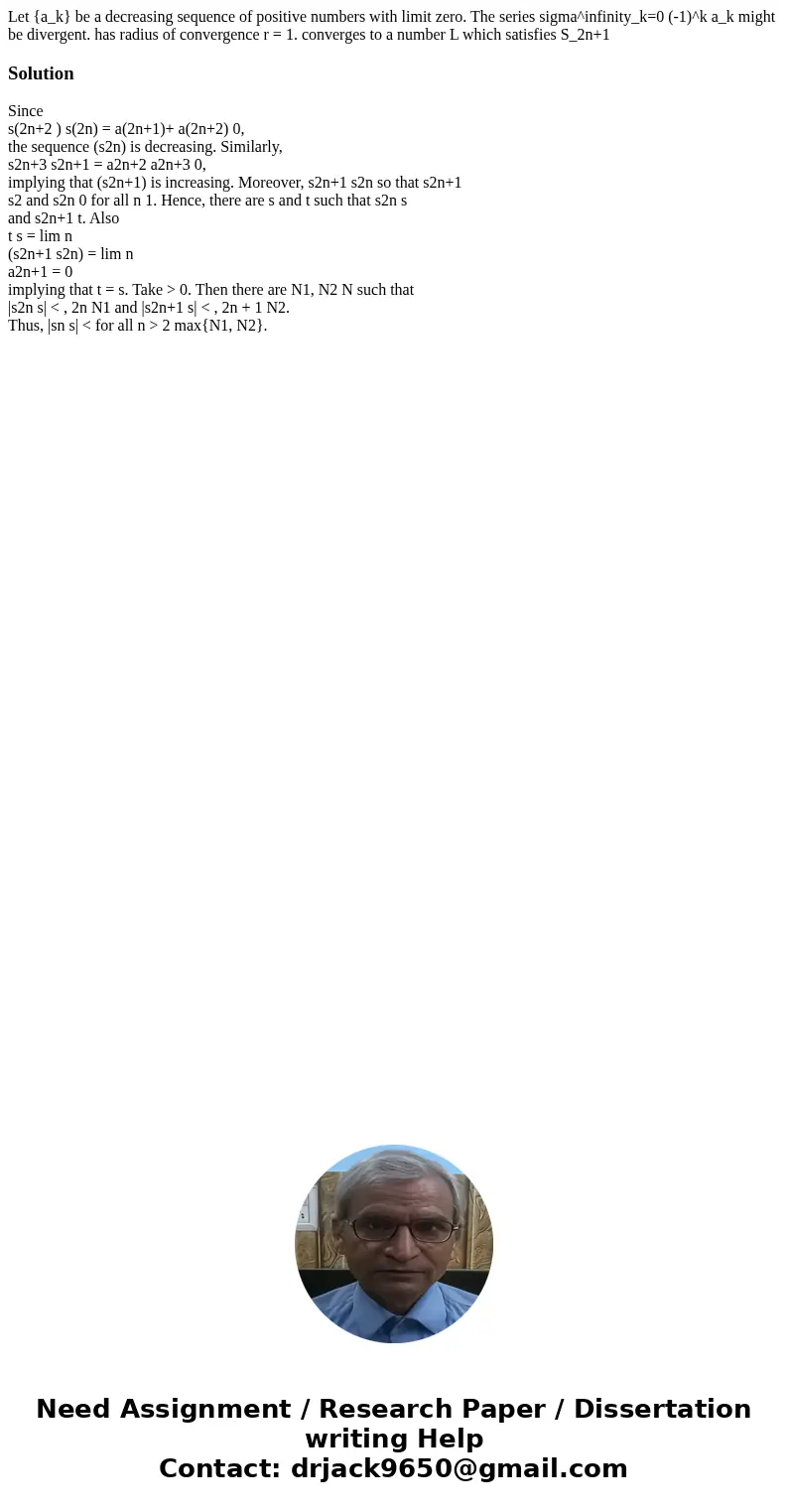Let ak be a decreasing sequence of positive numbers with lim
Let {a_k} be a decreasing sequence of positive numbers with limit zero. The series sigma^infinity_k=0 (-1)^k a_k might be divergent. has radius of convergence r = 1. converges to a number L which satisfies S_2n+1 
Solution
Since
s(2n+2 ) s(2n) = a(2n+1)+ a(2n+2) 0,
the sequence (s2n) is decreasing. Similarly,
s2n+3 s2n+1 = a2n+2 a2n+3 0,
implying that (s2n+1) is increasing. Moreover, s2n+1 s2n so that s2n+1
s2 and s2n 0 for all n 1. Hence, there are s and t such that s2n s
and s2n+1 t. Also
t s = lim n
(s2n+1 s2n) = lim n
a2n+1 = 0
implying that t = s. Take > 0. Then there are N1, N2 N such that
|s2n s| < , 2n N1 and |s2n+1 s| < , 2n + 1 N2.
Thus, |sn s| < for all n > 2 max{N1, N2}.

 Homework Sourse
Homework Sourse